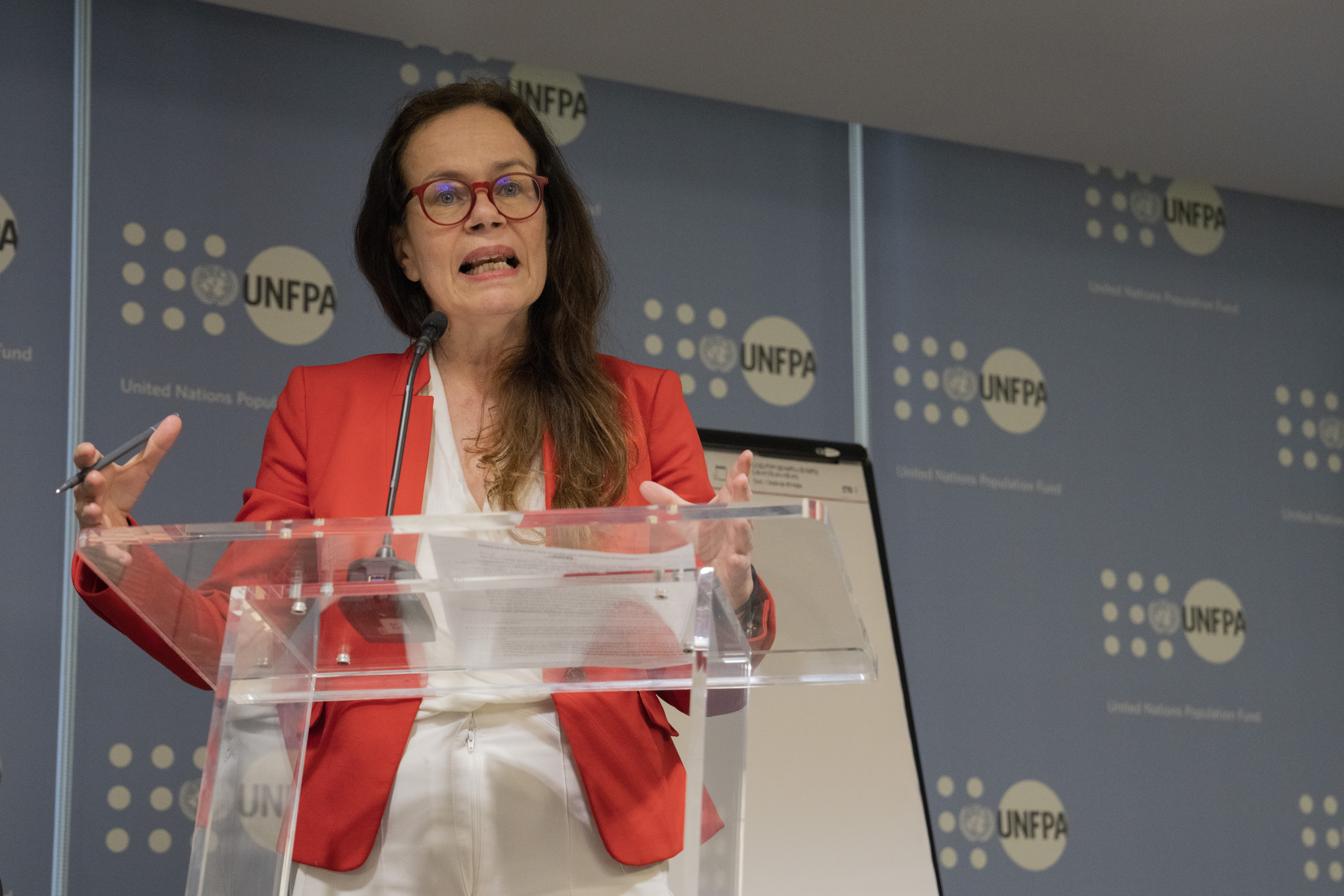Advocates want real change in fight for gender justice

Kalliopi Mingeirou, from UN Women, offers a call to action for gender equality in her closing remarks at the Freedom of Expression and Gender Justice event. Photo by Berit Thorson.
NEW YORK — To commence the 30th anniversary of World Press Freedom Day events, international leaders and UN freedom of expression advocates gathered at the United Nations Population Fund Headquarters to discuss Freedom of Expression and Gender Justice in the digital age.
The panelists discussed current challenges and advancements to societal inequalities in the wake of the Commission on Status of Women’s sixty-seventh session. In March 2023, the CSW — the main global policy-making advocacy organization for gender equality — focused on “innovation and technological change, and education in the digital age for achieving gender equality and the empowerment of all women and girls.” Following three years of the COVID-19 pandemic, this was the first completely in-person CSW session and it attracted over 7,000 participants.
“It is important to highlight that this [the March event] was also the first ever CSW to examine technology in the context of gender equality,” Kalliopi Mingeirou, from UN Women, said. “We are really happy because this year’s theme demonstrates the high political will of member states and partners to address the issues that are related to gender equality.”
In her role as the Chief of Ending Violence Against Women Section at UN Women, Mingeirou works with women and various partners to develop innovative and collaborative roadmaps toward combating gender-based violence.
One of the projects she supports is Generation Equality, an initiative convened by the UN, that collaborates with organizations to accelerate the investment and advancement on gender equality. This world-leading initiative develops blueprints of actions in its Action Coalition Technology and Innovation for Gender Equality. For example, the Action Coalition aims to “double the proportion of women working in technology and innovation by setting up new networks and benchmarks to transform innovation ecosystems,” by 2026. To help meet its goal, the initiative developed a globally accessible database that lists digital employment opportunities for women. Advocates say, there must be a universal commitment to equality in the workforce and participation in digital cooperation and public policies.
Mingeirou encourages readers to comprehensively look at the CSW guidelines and the ambitions of other UN Women partner organizations, as she hopes it will inspire global-level action.
The CSW’s Agreed Conclusions outline strategic steps to reduce gender inequality and discrimination and reinforce the stakeholder recommendations outlined in the 2022 Joint Declaration on Freedom of Expression and Gender Justice.
“We need to look at the mandates that the Joint Declaration on Freedom of Expression and Gender Justice accomplished in 2022 and synergize the work with the conclusions agreed upon in this year’s CSW. We can then see how to collectively move forward to address the difficult societal challenges and inequalities we experience in this digital era,” said Teresa Ribeiro, the representative for the Organization for Security and Co-operation in Europe on Freedom of Media, prior to speaking on the panel.
Fellow panelists emphasized Mingeirou and Ribeiro’s demand that gender justice in the digital age requires a “whole society” approach, where practical actions are implemented globally to protect women and prevent gender-based violence. Ultimately, the advocates hope that international support of women can promote their voice, agency and agenda.

